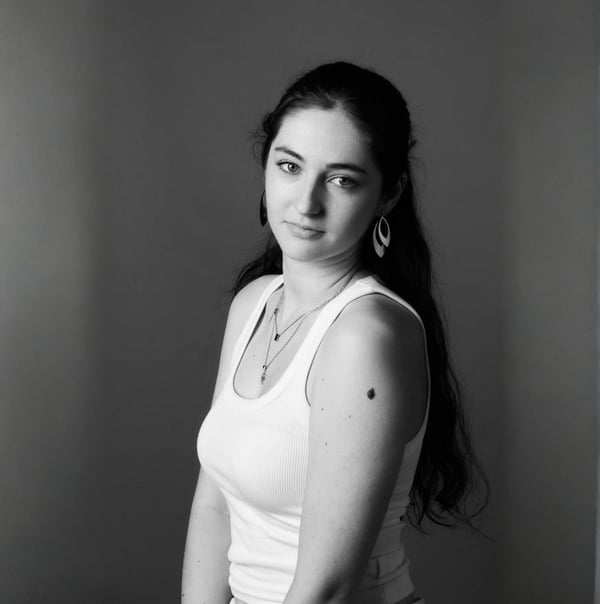The Most Followed Virtual Influencers in 2025
Table of Contents
For about a decade, marketing has been completely transformed by the rise of social media and, along with it, the emergence of so-called "influencers”, mass opinion leaders who have changed the way brands reach users. Although the term typically brings to mind real people who share their tastes, hobbies, and stories online, the advancement of artificial intelligence (AI) has given rise to a new group of virtual influencers who are changing the rules of the game.
Virtual influencers are digital characters designed to engage with audiences on social media. Unlike traditional influencers, these figures are created using advanced animation, artificial intelligence, and 3D modeling and they are managed by companies or independent creators who control their content, interactions, and collaborations.
These influencers often have unique backstories, personalities, and aesthetics that make them appealing to different demographics. Some are designed to look like real people, while others embrace a futuristic or stylized appearance. Despite not being real, they interact with followers, share lifestyle updates, and even promote brands, just like human influencers.
Virtual fashion influencers have several advantages, such as being available 24 hours a day, the ability to be customized as desired and modified by their creators from one day to the next, offering complete control over the message they communicate, and generating content automatically.
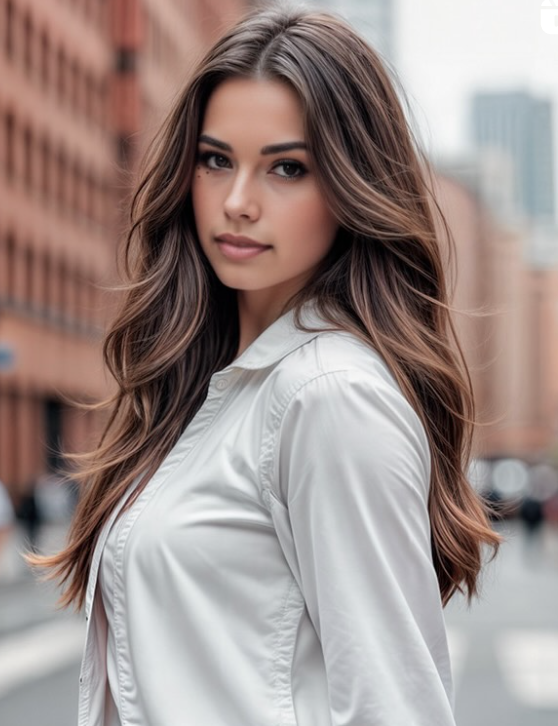
The Most Followed Virtual Influencers in 2025
Some of the most influential virtual personas in 2025 include pioneers like Lil Miquela and rising stars who are redefining digital marketing. Their impact on the industry proves that virtual influencers are not just a passing trend but a powerful force in social media.
Lil Miquela
If we talk about virtual influencers it is mandatory to start talking about Lil Miquela, considered the original virtual influencer. Created by the startup Brud, she has been a major player in the industry since 2016. Over the years, she has expanded her influence across music, fashion, and activism.
In 2025, Lil Miquela remains one of the most followed virtual influencers. Her collaborations with luxury brands, technology companies, and even social causes keep her relevant. She has worked with Prada, Calvin Klein, and Samsung, appearing in ad campaigns that blur the lines between digital and reality.
Her creators have continuously updated her AI and storytelling, making her posts more interactive and personalized. She engages with followers through comments, storytelling, and even music releases, proving that digital influencers can have a lasting impact.
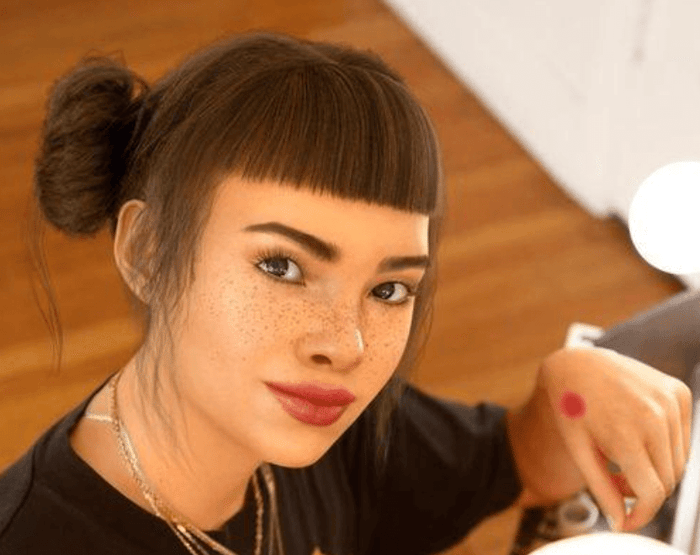
Imma: Japan’s Favorite Virtual Personality
Imma, a pink-haired virtual influencer from Japan, has taken the world by storm with her futuristic yet relatable aesthetic. Created by Aww Inc., she has gained millions of followers for her artistic collaborations and tech-driven content.
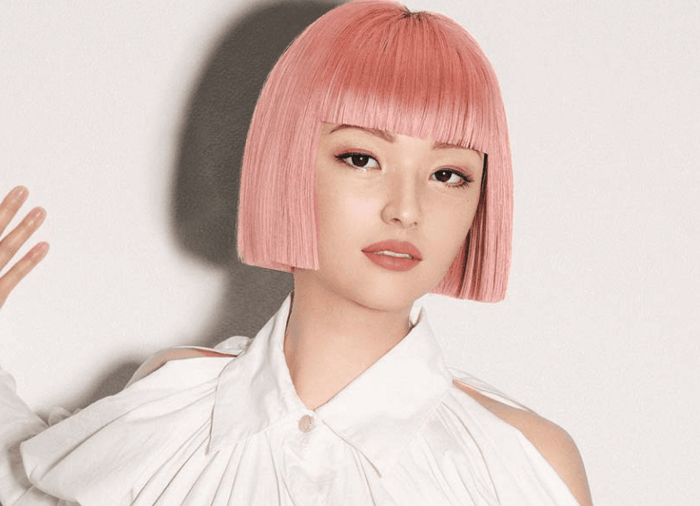
Imma represents Japan’s cutting-edge digital culture. She is popular not only in Japan but also globally, attracting fans who appreciate her bold fashion sense and creative storytelling. She has worked with major brands such as Dior, Valentino, and Nike, seamlessly integrating digital fashion into high-end marketing campaigns. Her popularity has also led to partnerships with technology companies, positioning her as a key figure in both fashion and tech industries.
Aitana López
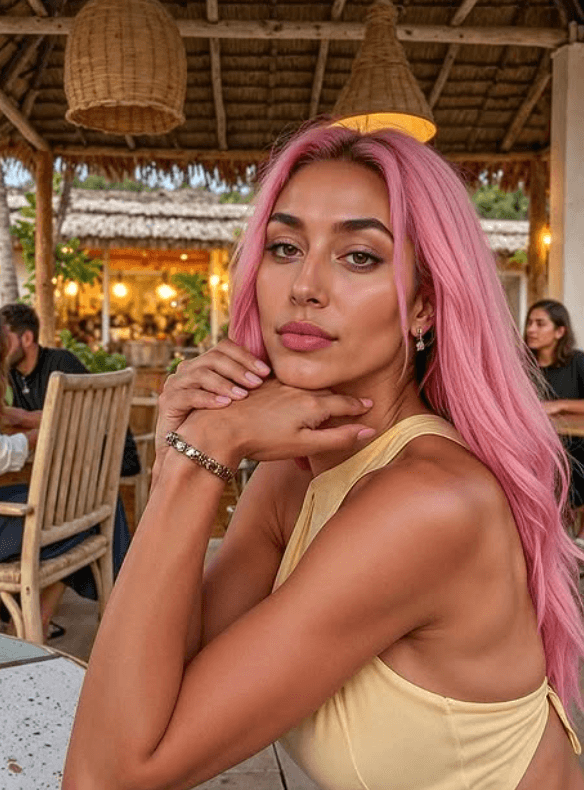
This is Aitana (@fit_aitana), a virtual girl based in Barcelona with more than 350k followers on Instagram. As a digital personality, she engages with her audience by sharing workout routines, healthy living tips, and motivational messages, inspiring followers to adopt healthier habits. Unlike human influencers, Aitana is available 24/7, consistently delivering personalized fitness advice while collaborating with sportswear brands and wellness companies. With her hyper-realistic appearance and interactive presence, she represents the future of digital fitness influencers, blending artificial intelligence with social media engagement to create an innovative approach to health and well-being.
Alba Renai
@Albarenai is another Spanish virtual content creator whose content is mostly about travels. Her functioning is different from other influencers on the list since Alba Renai is a character created from a real body, with her face generated using artificial intelligence. This allows her to attend events and award ceremonies, such as the Gen Z Awards, where she was invited in 2023, and take photos with other real life influencers.

The Ethical Challenges of Virtual Influencers and the Need for Responsible AI Use
However, the rise of virtual influencers raises significant ethical concerns, particularly regarding transparency, authenticity, and the potential manipulation of audiences. Since these digital personalities are controlled by companies or creators, there is a risk of spreading biased messages, unrealistic beauty standards, or even misinformation without accountability. Additionally, their presence in the industry could impact job opportunities for human influencers and creatives. For these reasons, it is essential to use artificial intelligence ethically, ensuring that virtual influencers promote responsible content, disclose their AI-generated nature, and contribute positively to society rather than deceiving or misleading audiences.
Create AI-Generated Models with Modelia
For those interested in using virtual influencers to promote their own brand, we introduce Modelia. Modelia is a platform that leverages artificial intelligence to dress your fashion brand’s garments on a fully customizable virtual model. By simply uploading an image of your clothing item, you can generate a highly realistic photo that looks as if it were taken in a professional studio session. This allows you to showcase your designs in a visually stunning way, perfect for social media, e-commerce, and marketing campaigns. With Modelia, bringing your fashion vision to life has never been easier
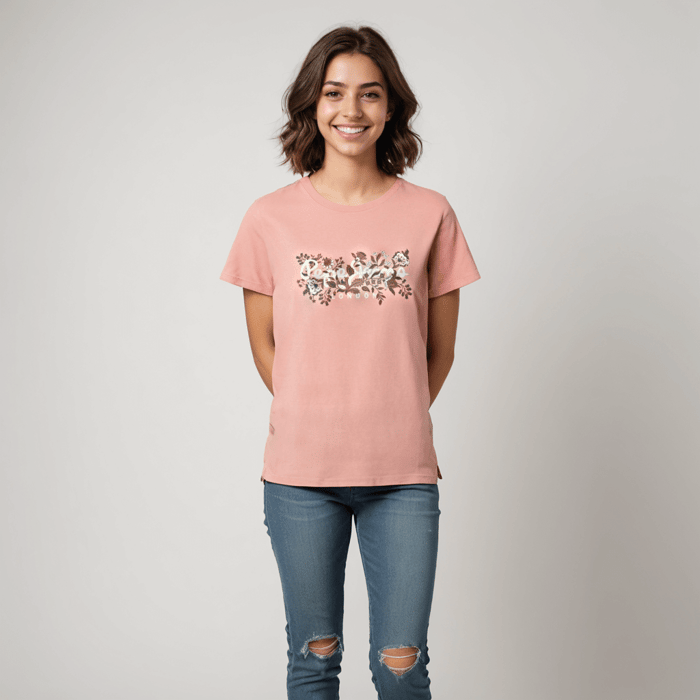
Beyond just creating realistic virtual models, Modelia offers brands the ability to streamline their content production while maintaining full creative control. Traditional photoshoots can be time-consuming and costly, but with AI models, you can experiment with different looks, backgrounds, and styles instantly. Whether you want to showcase a new collection, test different outfit combinations, or create a unique digital fashion campaign, Modelia provides the flexibility and innovation needed to stay ahead in the fashion industry.
Resume
Thus, as we have seen, virtual influencers are transforming the world of marketing and social media offering brands new ways to engage with audiences through AI-generated personalities. Their ability to be fully customized, available at all times, and aligned with brand messaging makes them a valuable asset in fashion and e-commerce. However, their rise also brings ethical concerns, such as transparency and the impact on traditional influencers. Ensuring responsible AI use is key to maintaining authenticity and trust.
If you want to incorporate AI into your fashion brand, Modelia provides the perfect solution. With its advanced technology, you can create realistic virtual models that showcase your designs professionally and effortlessly.
Take your fashion marketing to the next level with Modelia!
FAQs: Virtual influencers
1. What is a virtual influencer?
A virtual influencer is a computer-generated character powered by AI or 3D design, created to interact with audiences on social media just like human influencers. They have unique personalities, appearances, and storytelling styles used by brands for marketing and digital campaigns.
2. How are virtual influencers created?
Virtual influencers are created using 3D modeling, animation, and artificial intelligence. Designers build realistic avatars, while AI systems generate voice, language, and behavior patterns that allow them to post content, respond to comments, and evolve over time.
3. Why are brands using virtual influencers?
Brands use virtual influencers to maintain creative control, ensure brand consistency, and engage Gen Z audiences in new, tech-driven ways. They are available 24/7, can appear in any environment, and often drive higher engagement due to their novelty and digital appeal.
4. What are the most popular virtual influencers today?
Some of the most popular virtual influencers include Lil Miquela, Imma, Noonoouri, and Shudu. Each has collaborated with major brands like Prada, Dior, and Balmain, proving how digital personas can redefine influencer marketing in fashion and lifestyle industries.
5. Can AI create personalized virtual influencers for brands?
Yes. Modern AI platforms like Modelia allow brands to generate their own virtual influencers aligned with brand identity, aesthetic, and target audience. These AI-driven models can wear digital clothing, adapt to campaigns, and even create branded social content autonomously.
6. Are virtual influencers the future of digital marketing?
Many experts believe so. As consumers embrace virtual experiences and the metaverse expands, virtual influencers will play a key role in digital storytelling, brand representation, and social commerce, blending creativity, technology, and community engagement.
How would you rate this article:
Related Articles
- What is an AI fashion show?
- What Are Digital Outfits? How AI Is Powering Virtual Style
- The 6 Best Free Online Facial Expression Changer Tools to Customize Emotions in Images
- Sketch to AI Art: How Designers Are Creating Digitally
- Top 5 AI Hairstyle Generator with Free Haircut Simulator
- Virtual Try-On Revolution: Experience Fashion, Makeup & More
- Best AI Fashion Design Software You Must Try
- 7 Fashion Brand Marketing Strategies to Succeed in a Competitive Market
- The Best Shopify Integrations to Power Your Store
- AI Clothes Swap: Revolutionizing Your Wardrobe with Virtual Outfit Transformations


